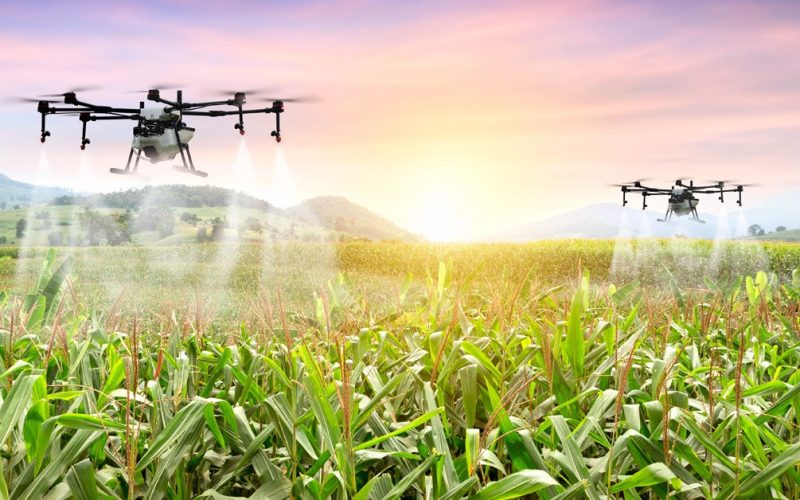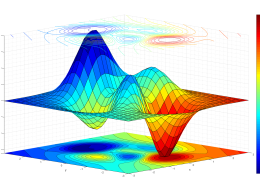Introduction:
In today’s rapidly evolving world, innovation has become the driving force behind progress in various fields. Agriculture, the backbone of human civilization, is no exception. In this article, we’ll delve into the exciting realm of agricultural evolution, shedding light on the groundbreaking innovations reshaping the way we grow food. Join us as we explore the cutting-edge technologies, sustainable practices, and transformative approaches revolutionizing agriculture.
The Rise of Precision Farming
Precision farming, empowered by technologies like GPS, drones, and IoT sensors, is revolutionizing traditional agricultural practices. By precisely managing resources such as water, fertilizers, and pesticides, farmers can optimize yields while minimizing environmental impact. Let’s delve into how precision farming is enhancing efficiency and sustainability in modern revolutionizing agriculture.
Harnessing the Power of Data Analytics
Data analytics is empowering farmers with actionable insights into crop health, soil conditions, weather patterns, and market trends. By harnessing big data and AI algorithms, farmers can make informed decisions, optimize resource allocation, and mitigate risks. Explore how data-driven approaches are driving agricultural innovation to new heights.
Sustainable Agriculture Practices

Amid growing concerns about environmental sustainability, sustainable agriculture practices are gaining traction worldwide. From organic farming and agroforestry to regenerative agriculture, farmers are embracing methods that promote soil health, biodiversity, and carbon sequestration. Discover how sustainable practices are fostering resilience and longevity in agricultural systems.
Vertical Farming and Urban Agriculture
With rapid urbanization and limited arable land, vertical farming and urban agriculture offer promising solutions to meet the demands of urban populations. By cultivating crops in vertically stacked layers or urban spaces, these innovative approaches reduce transportation costs, conserve resources, and enhance food security. Learn how vertical farming is reshaping urban landscapes and redefining the future of food production.
AgriTech Startups Driving Innovation
The agricultural sector is witnessing a surge in AgriTech startups, developing innovative solutions to address pressing challenges faced by farmers. From smart irrigation systems and drone-based crop monitoring to blockchain-enabled supply chain management, these startups are revolutionizing the way agriculture operates. Explore the diverse range of AgriTech innovations fueling agricultural transformation.
Collaborative Efforts for Global Impact

Addressing complex agricultural challenges requires collaboration across sectors and regions. International organizations, governments, NGOs, research institutions, and private companies are joining forces to promote knowledge sharing, capacity building, and technology transfer. Discover how collaborative efforts are driving positive change and fostering sustainable development in agriculture worldwide.
Informative Table: Key Points in Agricultural Innovation
| Innovation | Description |
|---|---|
| Precision Farming | Utilizes technology to optimize resource management and enhance efficiency. |
| Data Analytics | Empowers farmers with data-driven insights for informed decision-making. |
| Sustainable Agriculture | Promotes practices that prioritize environmental stewardship and long-term viability. |
| Vertical Farming | Cultivates crops in vertically stacked layers or urban environments for space efficiency. |
| AgriTech Startups | Develops innovative solutions to address agricultural challenges through technology. |
| Collaborative Efforts | Facilitates partnerships for knowledge sharing and collective action towards sustainability. |
Comparative Table: Sustainable Agriculture Practices
| Practice | Description | Benefits |
|---|---|---|
| Organic Farming | Avoids synthetic chemicals; promotes soil health. | Reduced environmental impact; Healthier produce. |
| Regenerative Agriculture | Focuses on soil health, biodiversity restoration. | Enhanced soil fertility; Carbon sequestration. |
| Agroforestry | Integrate trees into farming systems. | Improved biodiversity; Sustainable land management. |
Conclusion:
In conclusion, the agricultural sector stands at the forefront of innovation, propelled by technological advancements, sustainable practices, and collaborative initiatives. As we navigate the challenges of feeding a growing population while preserving our planet’s resources, the fields of innovation in agriculture offer hope for a brighter and more sustainable future.
Knowledge Source:
Dr. Green is a renowned agricultural scientist with over two decades of experience in agricultural research and innovation.
She has authored numerous peer-reviewed publications and led groundbreaking projects in precision agriculture and sustainable farming practices.
Currently serving as the Director of Research at the Center for Agricultural Innovation, Dr. Green is dedicated to advancing agricultural knowledge and promoting sustainable development.
This article aims to provide valuable insights into the exciting developments shaping the future of agriculture, appealing to farmers, agricultural professionals, policymakers, and anyone interested in the intersection of technology and sustainability in food production. Through engaging content, informative tables, and expert perspectives, readers will gain a deeper understanding of the transformative potential of agricultural innovation in addressing global food security and environmental challenges.










